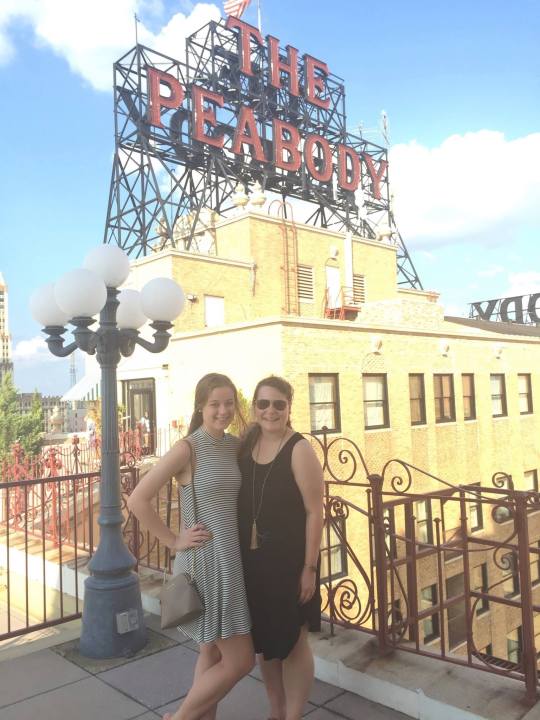About half of V is quite good. Unfortunately, V was a two-night mini-series and the first half is good part. The second half, not so much. The first half has human-like alien visitors arriving on Earth, in hopes of making a chemical compound to take back home to save their planet. Turns out they’re lying about pretty much everything and they’re actually bad aliens. It’s just they’ve taken over the planet by the time anyone notices. Traditional good guys like American presidents or the military are taken completely unawares and it’s up to the little people. Actually, specifically, it’s up to the scientists. Because the aliens hate scientists. Because they science things and find out the truth. It’s actually never explained.
Writer and director Johnson sets most of the action in Los Angeles. There are the doctors at a hospital and their supporting cast, then these families in one neighborhood. Everyone is interconnected. Richard Lawson is a doctor at the hospital, his dad (Jason Bernard) works at a chemical plant, that chemical plant is run by Hansford Rowe, who is married to Neva Patterson, whose son from a previous marriage is lead Marc Singer.
In the first half, Singer’s only the lead because he’s the cocky white guy. In the second half, he’s the lead because he’s the cocky white guy who does dangerous things and makes the hard decisions. Second lead technically is Faye Grant. She’s a med student who ends up running a resistance cell. She works with Lawson. Remember him? He started this particular interconnected character web.
Grant starts V kind of second-fiddle to Ron Hajak. They’re a couple, living together, she’s the med student, he’s the stockbroker. Yuppie love. Or, as my wife put it, Ken and Barbie in the Malibu Beach House. It’s only significant because eventually Hajak disappears. And it turns out without the Ken and Barbie bicker thing, there’s not much to Grant. Johnson gets her about halfway through the first episode without having anything just for her.
Second half, she’s the resistance leader.
Grant is not good. She’s sympathetic. But the performance isn’t good. The part isn’t well-written. Johnson has a problem with the female parts here. Though it’s cool how V passes Bechdel; Grant is unsure in her newfound command, sweet older woman Camila Ashland reassures her. Unfortunately, Ashland’s not good either. She’s sympathetic. And Blair Tefkin’s feckless teenage girl is a whole other problem.
Oh, and Joanna Kerns as Singer’s ex-wife. Her part’s crap.
Anyway. Those parts are problems. Penelope Windust’s part is better for half of V–she disappears in the second half because… well, because her husband–Michael Durrell–gets to have a huge character arc out of nowhere. Not a particularly good arc either, in terms of writing or plotting. It drags, actually; Johnson makes a movie with flying saucers and somehow makes more requests for disbelief suspension when the sci-fi visual part is done. Sure, it comes back for the grand finale, but it’s way too action-oriented. Johnson is not good at the action. He’s good at the gee whiz factor, which isn’t appropriate in V after twenty or thirty minutes and he knows it. So then there’s no more gee whiz.
The finale features a starfighter battle. But the starfighters are spacious minivan-type starfighters. Johnson tries for sci-fi action in the sequence and fails miserably. It’s also way too long a sequence. It’s okay compost shots of the starfighter minivans, but then there are these terrible one or two-shots of the starfighter pilots. It looks like they’re sitting at tables. There’s even a rear gun in the minivan. Because Johnson needs another Star Wars nod. Besides some production design stuff, there’s also a sequence where the aliens arrive and a high school band plays The Imperial March from Empire.
That arrival sequence? It’s at Patterson’s husband’s plant, which Singer is covering, and Tefkin is playing in the band. It’s so unfortunate the second half of V doesn’t bring the cast together better. Johnson spends a lot of time being pragmatic about how to transition between characters and how to build subplots. Even when the writing is thin (Tefkin) or the acting isn’t great, there’s always something going on.
And then the beginning of the second half brings in a bunch of stray threads. Only Johnson doesn’t want to do melodrama so he goes for surprise. Melodrama probably would’ve worked better.
The second half also throws in good guy alien Frank Ashmore and his sexy sidekick, Jenny Neumann.
Johnson has an intricate thoughtful script for the first half. He builds his subplots, he cultivates them. Second half, he either tears them up or ignores them. He doesn’t build anything new for half of V. He just stops. The second night is a premature victory lap.
And gives Durrell way too much to do.
The first half just has the better writing, both of events and characters. Leonardo Cimino lives in the same neighborhood as Durrell. Cimino’s grandson is a collaborator. There are a lot of collaborators. Johnson’s a realist. David Packer plays the grandson. He’s crushing on Tefkin, incidentally. Packer’s good, though he gets a lot better writing and direction than Tefkin.
So you watch the first half and it’s all these interesting characters and how they’re experiencing an alien invasion. The second-half is totally different. At least, except when–especially at the end–Johnson wants to do callbacks to the first half.
The biggest and most immediate callback is Michael Wright. He’s Lawson’s thieving baby brother. But then he gets a great monologue and Johnson directs the heck out of it. So is it a problematic callback?
Sure?
Wright’s fine. Singer’s fine. Jason Bernard, Cimino, Evan C. Kim, Rafael Campos. They’re all fine. Bonnie Bartlett gives the best performance, even with a small, thin role. Overall, adequate acting, lot of charm; the TV movie way.
With caveats–V is a successful TV miniseries. Johnson keeps it together for over three hours and over a hundred speaking roles.
He should’ve just done the first half. Written the women’s parts better too, but the second half is superfluous. The narrative ambition is gone. The special effects ambition is present, but distorted. Bad finish. Especially when people are reconnecting and the scenes are all weak.
Good special effects overall. Some great makeup effects. Johnson does do one great action sequence. It’s right at the beginning. Again, he had a lot more ambition at minute four versus minute 105.
V doesn’t have a good ending. Johnson doesn’t even try to find one. It’s infuriating.
 ★½
★½
CREDITS
Written and directed by Kenneth Johnson; director of photography, John McPherson; edited by Paul Dixon, Alan C. Marks, Robert K. Richard, and Jack W. Schoengarth; music by Joseph Harnell; production designer, Charles R. Davis; produced by Chuck Bowman; aired by the National Broadcasting Company.
Starring Marc Singer (Mike Donovan), Faye Grant (Juliet Parrish), Jane Badler (Diana), Michael Durrell (Robert Maxwell), Michael Wright (Elias Taylor), David Packer (Daniel Bernstein), Leonardo Cimino (Abraham Bernstein), Evan C. Kim (Tony Wah Chong Leonetti), Jenny Sullivan (Kristine Walsh), Blair Tefkin (Robin Maxwell), Penelope Windust (Kathleen Maxwell), Richard Lawson (Dr. Ben Taylor), Peter Nelson (Brian), George Morfogen (Stanley Bernstein), Bonnie Bartlett (Lynn Bernstein), Frank Ashmore (Martin), Jason Bernard (Caleb Taylor), Rafael Campos (Sancho Gomez), Diane Cary (Harmony Moore), Robert Englund (Willie), Ron Hajak (Dennis Lowell), Joanna Kerns (Marjorie Donovan), Camila Ashland (Ruby Engels), Viveka Davis (Polly Maxwell), William Russ (Brad), Neva Patterson (Eleanor Dupres), Andrew Prine (Steven), Tommy Petersen (Josh Brooks), Jenny Neumann (Barbara), and Richard Herd (John).
RELATED
- OTHER FILMS DIRECTED BY KENNETH JOHNSON
- OTHER 1983 RELEASES
- More






